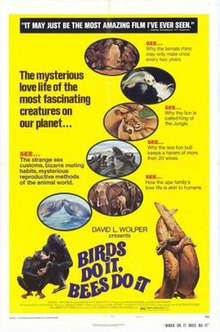
Paul Verhoeven is a Dutch director and screenwriter, active in the Netherlands, France and the United States. His blending of graphic violence and sexual content with social satire is a trademark of both his drama and science fiction films.

The Living Desert is a 1953 American nature documentary film that shows the everyday lives of the animals of the desert of the Southwestern United States. The film was written by James Algar, Winston Hibler, Jack Moffitt (uncredited) and Ted Sears. It was directed by Algar, with Hibler as the narrator and was filmed in Tucson, Arizona. The film won the 1953 Oscar for Best Documentary.

Krzysztof Kieślowski was a Polish film director and screenwriter. He is known internationally for Dekalog (1989), The Double Life of Veronique (1991), and the Three Colours trilogy (1993 –1994). Kieślowski received numerous awards during his career, including the Cannes Film Festival Jury Prize (1988), FIPRESCI Prize, and Prize of the Ecumenical Jury (1991); the Venice Film Festival FIPRESCI Prize (1989), Golden Lion (1993), and OCIC Award (1993); and the Berlin International Film Festival Silver Bear (1994). In 1995, he received Academy Award nominations for Best Director and Best Writing.

Irréversible is a 2002 French psychological thriller drama film written and directed by Gaspar Noé. Starring Monica Bellucci, Vincent Cassel, and Albert Dupontel, it depicts the events of a tragic night in Paris as two men attempt to avenge the brutal rape and beating of the woman they love. The film is told in reverse order, with each scene taking place chronologically before the one that precedes it.
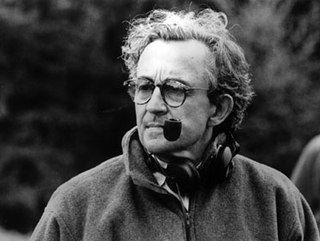
Louis Marie Malle was a French film director, screenwriter, and producer. His film Le Monde du silence won the Palme d'Or in 1956 and the Academy Award for Best Documentary in 1957, although he was not credited at the ceremony; the award was instead presented to the film's co-director Jacques Cousteau. Later in his career he was nominated multiple times for Academy Awards. Malle is also one of only four directors to have won the Golden Lion twice.
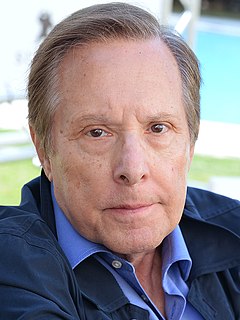
William Friedkin is an American film and television director, producer and screenwriter closely identified with the "New Hollywood" movement of the 1970s. Beginning his career in documentaries in the early 1960s, he directed the crime thriller film The French Connection (1971), which won five Academy Awards, including Best Picture, Best Adapted Screenplay and Best Director, and the supernatural horror film The Exorcist (1973), which earned him a nomination for the Academy Award for Best Director.
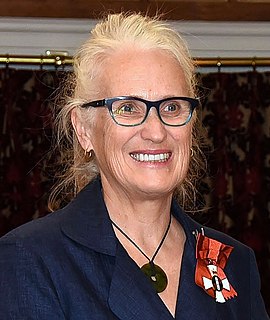
Dame Elizabeth Jane Campion is a New Zealand born director, screenwriter, and producer. She has received two Academy Awards, two BAFTA Awards, and two Golden Globe Awards for her critically acclaimed films, The Piano (1993), and The Power of the Dog (2021). Campion was appointed a Dame Companion of the New Zealand Order of Merit (DNZM) in the 2016 New Year Honours, for services to film.

Barbara Lynn Herzstein, better known as Barbara Hershey, is an American actress. In a career spanning more than 50 years, she has played a variety of roles on television and in cinema in several genres, including westerns and comedies. She began acting at age 17 in 1965 but did not achieve widespread critical acclaim until the 1980s. By that time, the Chicago Tribune referred to her as "one of America's finest actresses".

Wattstax was a benefit concert organized by Stax Records to commemorate the seventh anniversary of the 1965 riots in the African-American community of Watts, Los Angeles. The concert took place at the Los Angeles Memorial Coliseum on August 20, 1972. The concert's performers included all of Stax's prominent artists at the time. The genres of the songs performed included soul, gospel, R&B, blues, funk, and jazz. Months after the festival, Stax released a double LP of the concert's highlights, Wattstax: The Living Word. The concert was filmed by David L. Wolper's film crew and was made into the 1973 film titled Wattstax. The film was directed by Mel Stuart and nominated for a Golden Globe award for Best Documentary Film in 1974.

Mads Dittmann Mikkelsen, is a Danish actor. Originally a gymnast and dancer, he rose to fame in Denmark as an actor for his roles such as Tonny in the first two films of the Pusher film trilogy, Detective Sergeant Allan Fischer in the television series Rejseholdet (2000–2004), Niels in Open Hearts (2002), Svend in The Green Butchers (2003), Ivan in Adam's Apples (2005) and Jacob Petersen in After the Wedding (2006).

Microcosmos is a 1996 documentary film written and directed by Claude Nuridsany and Marie Pérennou and produced by Jacques Perrin. An international co-production of France, Switzerland, Italy and the United Kingdom, the film showcases detailed interactions between insects and other small invertebrates, and features music by Bruno Coulais.

Brothers Jean-Pierre Dardenne and Luc Dardenne, collectively referred to as the Dardenne brothers, are a Belgian filmmaking duo. They write, produce, and direct their films together.
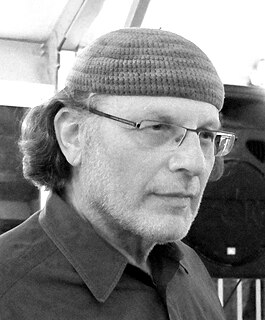
Simcha Jacobovici is an Israeli-Canadian film director, producer, freelance journalist, and New York Times bestselling author.

Pietro Germi was an Italian film director, screenwriter, and actor, noted for his development of the neorealist and commedia all'Italiana genres.

The cinema of Lebanon, according to film critic and historian Roy Armes, is the only other cinema in the Arabic-speaking region, beside Egypt's, that could amount to a national cinema. Cinema in Lebanon has been in existence since the 1920s, and the country has produced more than 500 films.

Matthew Robbins is an American screenwriter and film director best known for his work within the American New Wave movement.

Visions of Eight is a 1973 American documentary film offering a stylized look at the 1972 Summer Olympics. Produced by Stan Margulies and executive produced by David L. Wolper, it was directed by eight directors. It was screened out-of-competition at the 1973 Cannes Film Festival. It was later shown as part of the Cannes Classics section of the 2013 Cannes Film Festival. Some visuals of the Munich stadium from the documentary were used in Without Limits.
Irwin Rosten was an American documentary filmmaker who also produced several hour-long documentaries for television. He is best known for his 1975 film Man: The Incredible Machine. He was twice nominated for an Academy Award and won an Emmy Award for the documentary Mysteries of the Mind.

Honeyland is a 2019 Macedonian documentary film that was directed by Tamara Kotevska and Ljubomir Stefanov. It portrays the life of Hatidže Muratova, a loner beekeeper of wild bees who lives in the remote mountain village of Bekirlija, and follows her lifestyle before and after neighbors move in nearby. The film was initially planned as a short film documenting the region surrounding the river Bregalnica but its area of focus changed when the directors met Hatidže. Honeyland received its world premiere at the 2019 Sundance Film Festival on 28 January and it has grossed $1,315,037.
